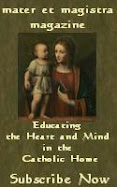 I've always been fascinated by William F. Buckley ... his was an interesting (charmed, some would say) existence. A wealthy, large family upbringing at the very best of schools (including boarding school in England and Yale for undergrad), a stint with the CIA "back in the day", and a prolific writing and broadcast career. To top it all off ... he was a staunch Catholic and conservative in his politics and philosophies.
I've always been fascinated by William F. Buckley ... his was an interesting (charmed, some would say) existence. A wealthy, large family upbringing at the very best of schools (including boarding school in England and Yale for undergrad), a stint with the CIA "back in the day", and a prolific writing and broadcast career. To top it all off ... he was a staunch Catholic and conservative in his politics and philosophies.Bill Buckley was "there" for all the big events in the 20th century -- born in the pre-dawn Depression Era, raised in New England and overseas, a quick tour in the Air Force, four years at the ivy-covered Yale and off to Mexico with the CIA, then back to New York area to wreak havoc for liberals and conservative fence-sitters.
His writing and very public denunciation of all things liberal began just after graduating from Yale -- he wrote a book titled God and Man at Yale
So from the very first, Buckley's persona has been linked to his religious sense -- he was raised in a family that believed (and he continued to believe till his death in 2008 at 83) that God, family and country deserve absolute fidelity and loyalty. In Jeremy Lott's new book, William F. Buckley
Part of Thomas Nelson's "Christian Encounter" series, Lott's book traces Buckley's entry onto the public stage, through his third-party run for Mayor of New York (not to win, so much, as to be able to air his views in a public forum), his debates with liberal and conservative leaders led to the interviewee's verbal-slaughter on "Firing Line", and his writings (both fiction and non-fiction) that allowed further cultivation and honing of his mystique.
Lott admires and respects his subject -- and has a similar turn of phrase to Buckley's now-famous way of writing. Lott does a great job of subtly linking Buckley's religious sense to his understanding of why, for instance, nuclear proliferation was critical at the time (since the Communists only believed in the here-and-now, they had a great stake in ensuring the "button" was never pushed while most Americans were Christians who looked to an afterlife) or why Buckley supported Goldwater but not Nixon. Buckley was involved in most of the latter-20th century political machinations -- either as an observer, critic or advisor. And Lott's book traces all of these.
This is a short book -- barely 150 pages -- but each page is filled with Buckley-isms, conservatism and Catholicity. It's a very readable volume with an excellent end filled with suggested further readings (which things to read or not) and resources.
I highly recommend this book for a great start (but don't stop there ... make sure you read some of his other writings and listen to his Firing Line interviews) to understanding this man who had such an influence on conservative philosophy in the second half of the 20th century.
Disclaimer: This book was received as part of Thomas Nelson's Book Sneeze program. In exchange for the book, I agreed to write a review. The words of this review are my honest reaction to this book.
 ...
... 

No comments:
Post a Comment